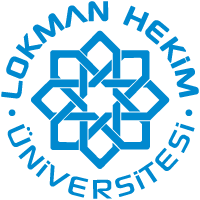Are serum nitric oxide and vascular endothelial growth factor levels affected by packed red blood cell transfusions?
Tarih
2010-06-01Yazar
Ergenekon, Ebru
Bozkaya, Davut
Goktas, Tayfun
Erbas, Deniz
Yucel, Aysegul
Turan, Ozden
Hirfanoglu, Ibrahim
Onal, Esra
Turkyilmaz, Canan
Koc, Esin
Atalay, Yildiz
Üst veri
Tüm öğe kaydını gösterÖzet
Background: Nitric oxide (NO) and vascular endothelial growth factor (VEGF) are important mediators for hemodynamics and angiogenesis in the body. NO coming from endothelial cells and red blood cells is particularly effective in hypoxic vasodilation. VEGF has known effects on the induction of NO synthesis and is also known to be affected by blood product transfusions. The
objectives of this study were to measure NO and VEGF levels before and after packed red blood cell (PRBC) transfusions.
Study design and methods: Blood was drawn from preterm newborns before and 30 min after PRBC transfusions and samples were used for NO and VEGF measurements. NO end products nitrite and nitrate were measured by modified Greiss method, VEGF levels measured by double sandwitch ELISA method. Vital signs including heart rate and blood pressure were also recorded.
Results: Thirty four newborns were included in the study and overall 54 transfusion episodes were assessed for mediator levels. No difference was observed between the mediator levels before and after PRBC transfusions. Vital signs were also unchanged.
Conclusion: As there was no change in NO end product levels with PRBC transfusions, it might suggest that hypoxia was not severe enough to cause nitrite increase; however, other NO sources might still be active. VEGF levels were found to be unchanged and may reflect a delayed effect of transfusion on VEGF induction.
Keywords: NO, VEGF, PRBC transfusion
Koleksiyonlar
Aşağıdaki lisans dosyası bu öğe ile ilişkilidir:

DSpace@LokmanHekim by Lokman Hekim University Institutional Repository is licensed under a Creative Commons Attribution-NonCommercial-NoDerivs 4.0 Unported License..














